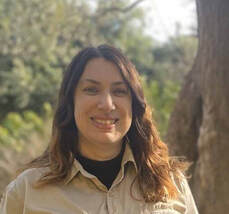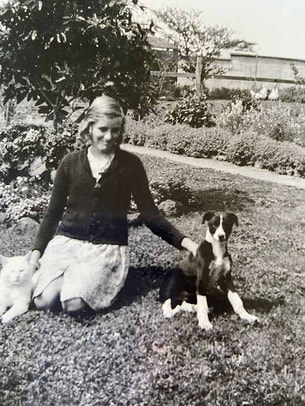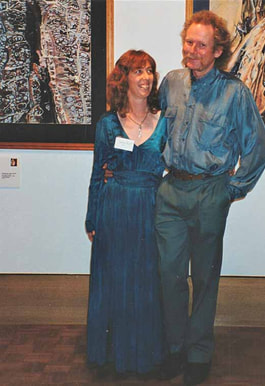 Andrea Cleland: Interviews with farmers, hoteliers, a developer, an artist and a newspaper editor provide a fascinating insight into Phillip Island’s rich history.
Andrea Cleland: Interviews with farmers, hoteliers, a developer, an artist and a newspaper editor provide a fascinating insight into Phillip Island’s rich history. By Dr Andrea Cleland
A PASSION for recording people’s stories and a deep love of Phillip Island led to my working on a major oral history project for the Phillip Island and District Historical Society. It’s been a rewarding experience as a local oral historian to record memories of the deep connections and experiences of local islanders.
The project, which we are now wrapping up, kicked off in December 2020 soon after the second lockdown impacted our tourism dependent community. In and out of lockdowns (including supporting my child learning from home) I interviewed nine Phillip Islanders around the themes of farming, tourism, business, lifestyle and migration on Phillip Island over the past 60 years.
A PASSION for recording people’s stories and a deep love of Phillip Island led to my working on a major oral history project for the Phillip Island and District Historical Society. It’s been a rewarding experience as a local oral historian to record memories of the deep connections and experiences of local islanders.
The project, which we are now wrapping up, kicked off in December 2020 soon after the second lockdown impacted our tourism dependent community. In and out of lockdowns (including supporting my child learning from home) I interviewed nine Phillip Islanders around the themes of farming, tourism, business, lifestyle and migration on Phillip Island over the past 60 years.
The Historical Society’s co-ordinator for this project was Christine Grayden, well known to many Bass Coast Post readers for her research and writing on local history, social issues and the environment. Christine, together with committee members of the Historical Society, found most of those to be interviewed. Christine also conducted an extra interview of her own on the theme of business.
- For the farming theme – Bob and Anne Davie, of Bimbadeen, Ventnor; well-known locally, nationally and internationally for many innovative farming practices. Their entrepreneurial approach is continued by the younger members of the family.
 Young Heather Hamilton (nee McLardy) with her pets.
Young Heather Hamilton (nee McLardy) with her pets. - For the lifestyle theme I interviewed well-known Phillip Island identities Heather Hamilton (née McLardy) and Elaine Webster (nee McFee), now in their 90s. It is fascinating to hear of their lives, starting before the advent of electricity and plastics on Phillip Island. The interview I conducted with Heather in 2021 is supplemented by a transcript now on the website of an interview conducted by Dr Rebecca Sanders in 2007 as part of her PhD research.
- For the migration theme, I interviewed my friend Freda Aravanis, of Ventnor, an active member of the substantial Greek community in Bass Coast. She migrated to Australia as a 16-year-old and, along with many others of her family, has had an association with Phillip Island for decades.
- The tourism theme was combined with the business theme for a detailed and insightful interview with Keith and Rhonda Jobe, of the Continental Hotel. Theirs is a gripping story of trials and tribulations, wooing international and local tourists to the island, and also being prepared to try a variety of different business approaches.
- Another interview on the business theme, with tourism elements – David Jobe was the third generation at the Continental Hotel, where he implemented many important changes. David also spoke in detail about the Southern Sustainable Developments business of infill residential development, especially at Seagrove Estate in Cowes.
- Conducted remotely by phone for the business theme – Anne Oswin provided wonderful insights into how the Phillip Island community banded together in good times and bad; how her friends assisted her as a young mum to conduct the Trenavin Park Devonshire Teas business; her time on the Phillip Island Council; and how she established, managed and edited the Phillip Island and San Remo Advertiser in 1989, and which continues to publish weekly despite all the challenges faced by print media in the 2020s.
 Josie Kent and Russell at the ‘Postcards and Souvenirs’ exhibition of Phillip Island artists at the National Gallery of Victoria in 1992
Josie Kent and Russell at the ‘Postcards and Souvenirs’ exhibition of Phillip Island artists at the National Gallery of Victoria in 1992 - For another business theme interview, Christine interviewed well-known Phillip Island artist Josephine Kent Allen on the subject of ‘art as business’. Josephine’s extensive experience in this field goes back to the 1980s and covers a huge range of art-business related activities, including as arts and cultural officer for Bass Coast Shire for many years.
Christine and I then shared the next task of editing each transcript, after which I provided the transcript to the interviewee to add or change the information as they needed to, and clarify items such as the spelling of names and places. Once they were happy with their transcripts, they were returned to us and formatted ready to go on to the historical society’s website, each tagged ‘Oral History Project’.
We are just putting the finishing touches to this project, so it’s a good time to let everyone know more about the transcripts and essays which are either already, or very soon to be, on the website. Each one is full of fascinating information and most include evocative images.
It has been a great pleasure for me to be involved in this wonderful project. Thanks to Christine for her thoughtful and insightful encouragement and expertise throughout the project. And especially to all the Phillip Islanders who so generously shared their stories with me and made this such a successful and rich project.
The Phillip Island and District Historical Society gratefully acknowledges the support of the Victorian Government, through the Community Support Fund, and Public Records Office of Victoria for making this project possible. This support recognises the critical importance of preserving memories of place and community for the future, before they are in danger of becoming lost.